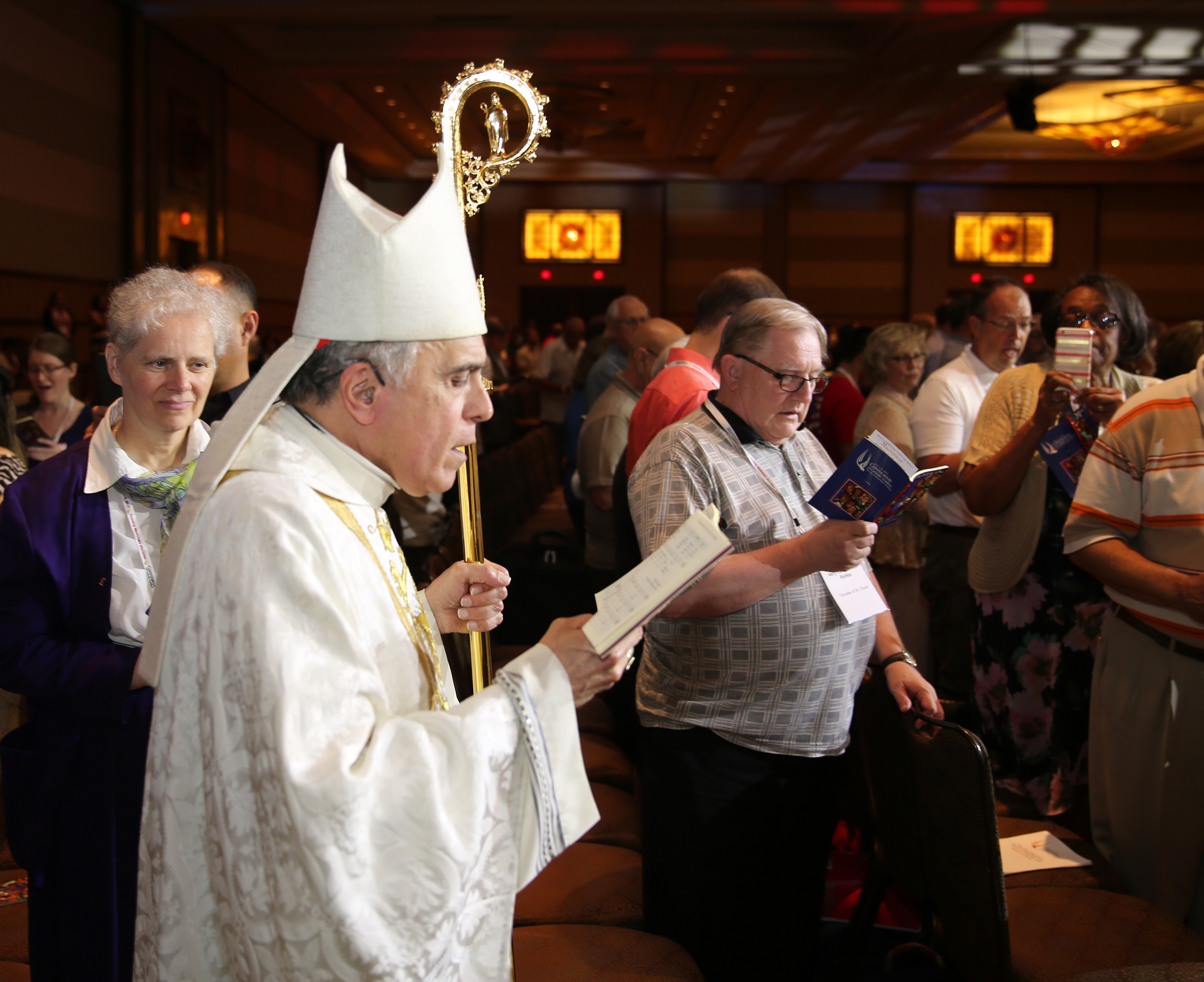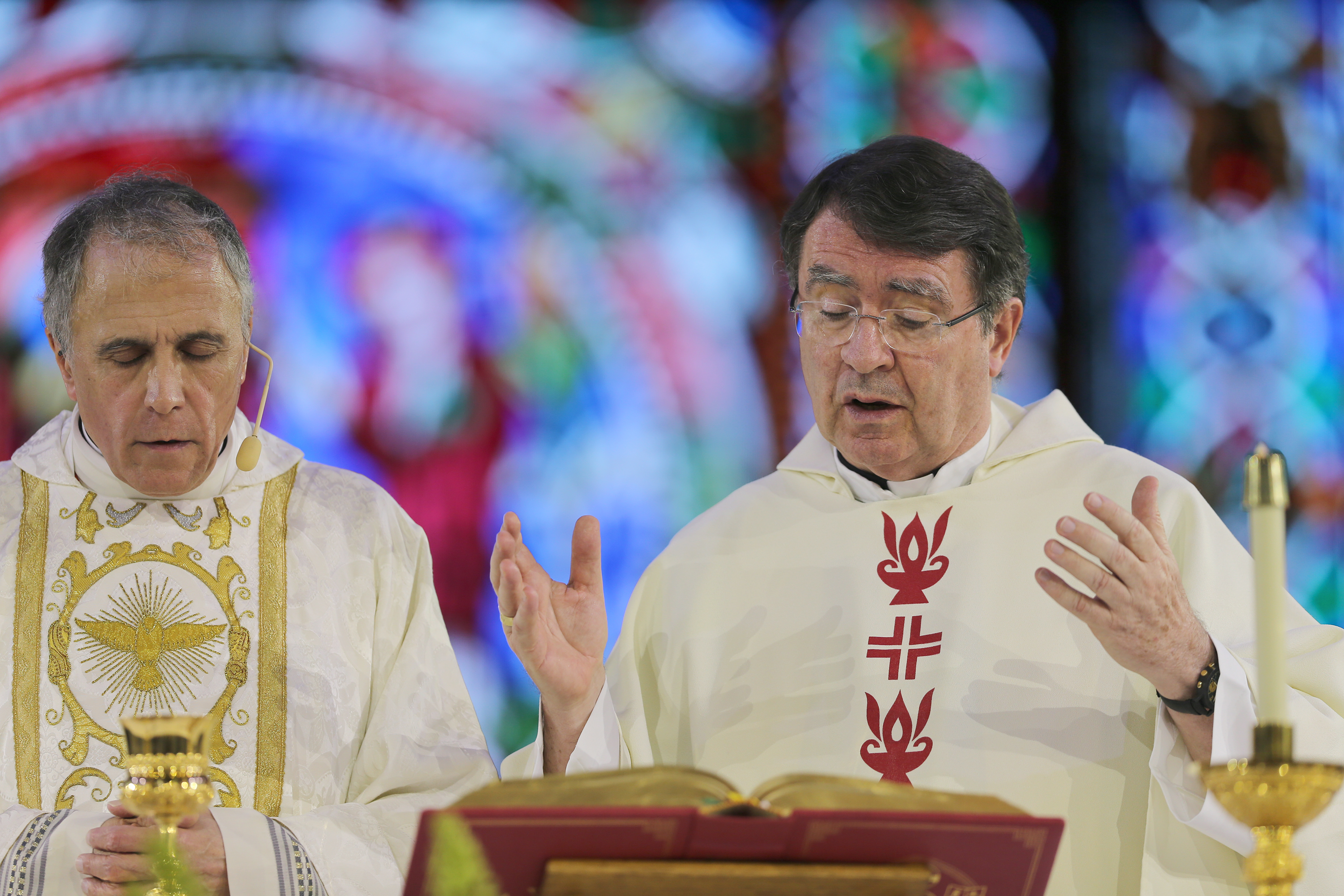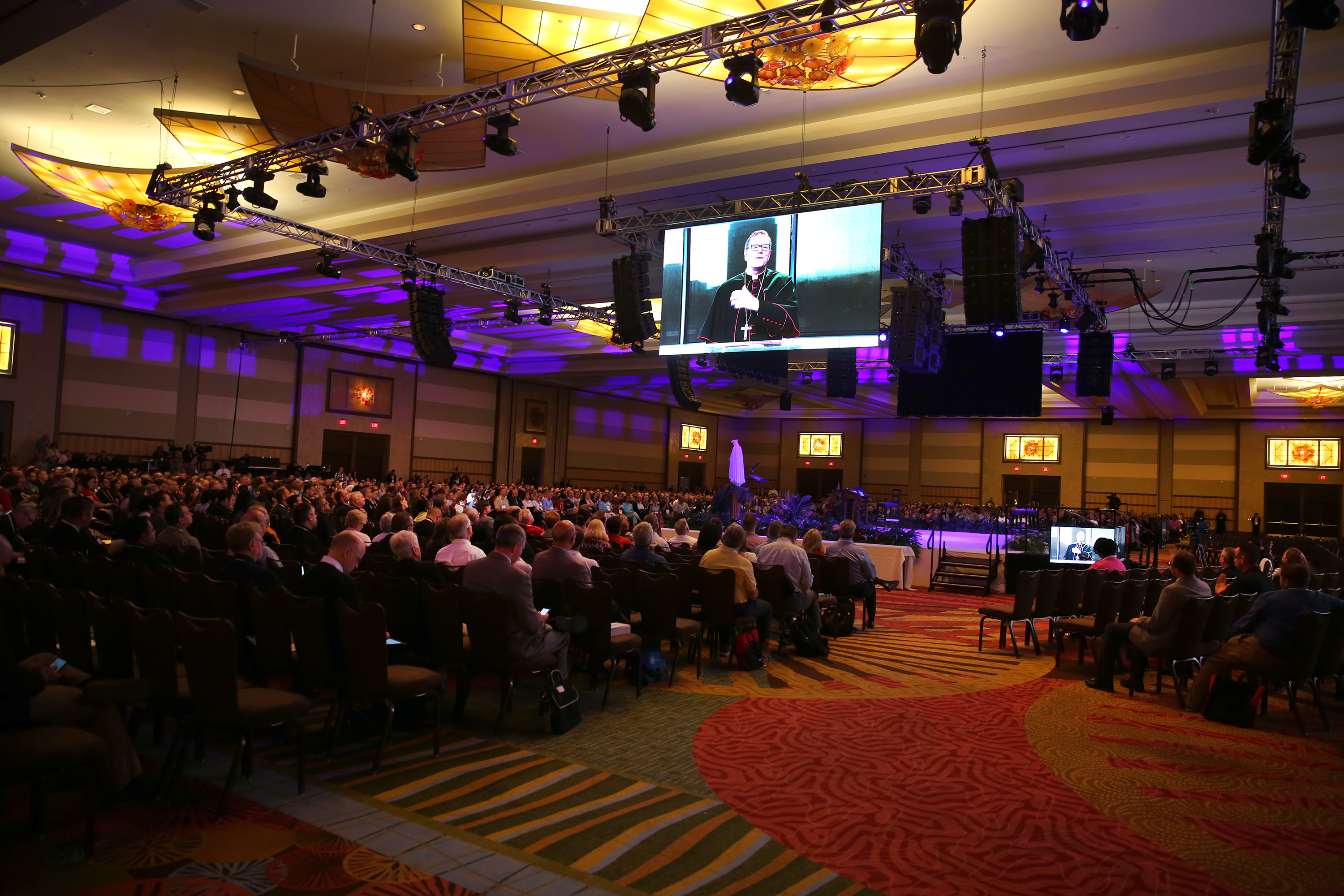ORLANDO, Fla. (CNS) — Jesus took a few loaves and fishes and turned them into a feast for thousands, offering the Church an example of faith in action, Cardinal Daniel N. DiNardo of Galveston-Houston said in sending 3,500 delegates home from the “Convocation of Catholic Leaders: The Joy of the Gospel in America.”
In the face of adversity and naysayers in today’s world — not unlike the apostles who wondered how they would feed the masses — the Church is called to take what they have, as Jesus did and reap the rewards of achieving great things in the face of the impossible, Cardinal DiNardo said in his homily during the convocation’s closing Mass July 4.
“When we see the complexity, when we see the impossible … Jesus will say, ‘Just give me what you have.’ Imagine what we will have left over after we do it at the Lord’s word,” he said.
“Jesus gives the apostles and everybody who listens to them … he gives them that power. Do we believe? St. Paul says if we believe can go out and do what is asked,” said Cardinal DiNardo, president of the U.S. Conference of Catholic Bishops.
Citing the Gospel reading from John (17:11, 17-23), the cardinal also urged the delegates to reflect on how Jesus during the Last Supper reminded the Twelve Apostles that He will pray for all who believe He is the savior that they may be united in one family under God.
Such is the call of the Church, he explained, as the delegates returned home — to unite people together by going to the peripheries of society and sharing the good news of Jesus through action rooted in faith.

“Sisters and brothers, we are in a very, very significant time in our Church in this country,” Cardinal DiNardo said. “John 17 today reminds me of how contemplative we’re going to have to be if we are going to be active. Never are you more active than when the word of God is so recalled by you. You are seated there in God’s loving grace, and when you are seated there, you realize how much God blesses you.”
The cardinal urged the delegates to engage in their ministry humbly and to realize that they are nourished in their work through the body and blood of Jesus at Mass.
“We leave here (at the altar) nourished and refreshed and we go and do what we have to do,” he said.
As the Mass ended, Archbishop Christophe Pierre, apostolic nuncio to the U.S., congratulated convocation participants for a lively and invigorating four days. He recapped the keynote presentations, reminding the delegates what they can do in their communities, much like the apostles, to “give comfort and peace to the wounded.”
“We are journeying together in the common bonds of the journey of faith,” said the archbishop who attended the entire four-day conference that opened July 1.
“This is a ‘kairos’ moment” in the life of the U.S. Church, he added, calling people to share “by the witness of your lives” by being missionary disciples, as Pope Francis calls the faithful to be.
Archbishop Pierre also said in his upcoming report to the pope that he would explain that “the Spirit is alive in the Church in the United States.”
“I will tell him of the commitment of many missionary disciples and their love for the Church.”

Earlier in the day, delegates were told they have their work cut out for them but they are equipped to do it, by speakers at the final plenary session.
“The saints always loved a good fight and we should like a good fight too,” said keynote speaker Auxiliary Bishop Robert E. Barron of Los Angeles.
The bishop, known by many of the delegates for hosting the documentary series “Catholicism” and the website “Word on Fire,” was unable to get to the Orlando hotel where the convocation was taking place because of problems with his flight, so he greeted the crowd through a video hookup.
At the start of his talk, he cited sobering Church statistics about the decreasing number of Catholics today that some delegates heard at some of the breakout sessions. For every Catholic who joins the church, six leave, he said, and also the number of “nones” — those who claim no religious affiliation even if they were Catholic — is growing.
The bishop let this sink in and then went straight to encouraging delegates to move forward saying: “It’s an exciting time to be an evangelist.”
A major obstacle challenging Catholics who want to evangelize the modern world is that they are up against as he put it: “a culture of meh,” which is akin to a shrug of the shoulders, or an attitude of “whatever” or anything goes.
He said the way to combat this is to show people the beauty of the Catholic Church in its cathedrals and music, the good works of its people and its great intellectual tradition.
The bishop told the delegates who filled the hall for the final session that those who have heard him over the years know how much he hates “dumbed-down Catholicism.”
“We need to pick up our game intellectually if we are going to evangelize effectively today,” he said, adding that when religion isn’t expressed in a smart way people fall away because “superficial Catholicism is not enough to sustain people.”

Another speaker, Patrick Lencioni, an author and management consultant, gave the delegates plenty of practical information to take home with them stemming from business models that also can be applied to parishes and dioceses.
He told the delegates that the great ideas they bring home with them from the convocation will only succeed if they are working together with their church, diocesan or ministry groups.
He also said if they don’t have holiness or inner peace, “all your efforts to change the world won’t work.”
The business consultant, who co-founded the apostolate Amazing Parish, also told delegates that they had to be willing to face conflicts and challenges. He urged them to hold others in ministry accountable to do their best work, just as one would of a business employee.
And Bishop Richard J. Malone of Buffalo, New York, similarly urged the group to move forward but not in a rushed way. “Let’s take a long view of our work, ourselves, our mission,” he said.
He also urged the convocation delegates to remember they are not required to go forth and do the work of spreading the Gospel message alone.
“We’re not lone rangers,” he said. “We are part of a community. We are there to support each other.”
This article was compiled from articles written by CNS staff writers Dennis Sadowski and Carol Zimmermann.






